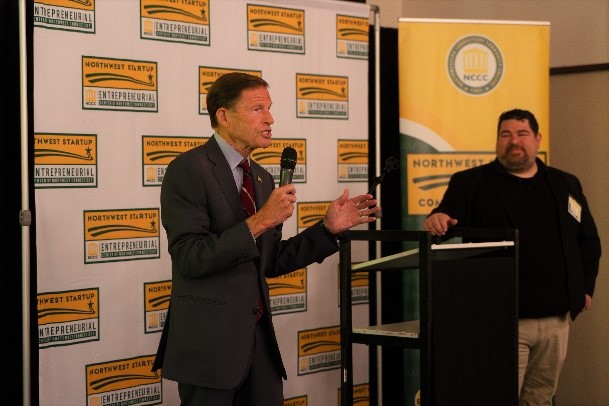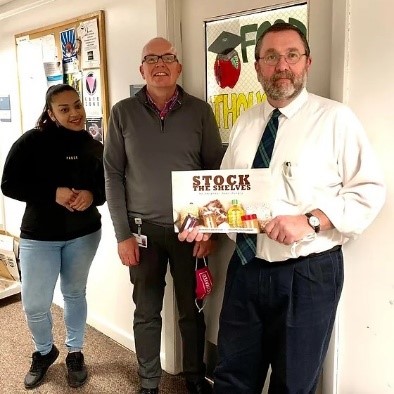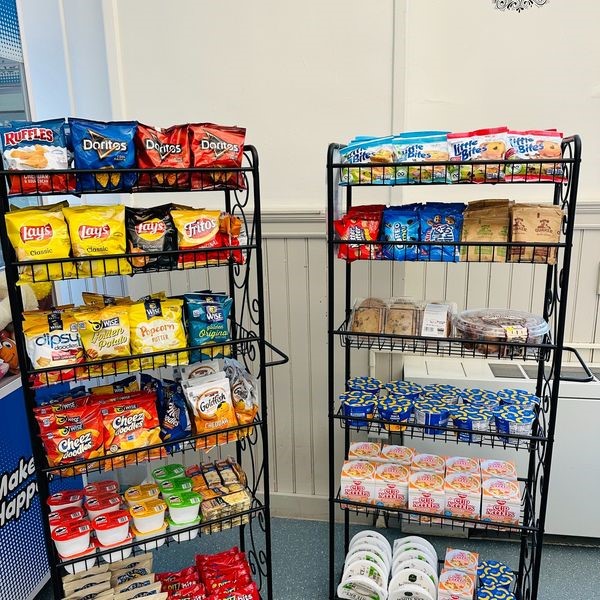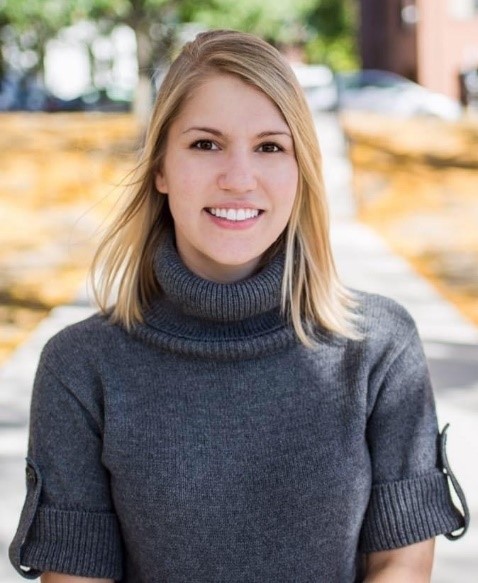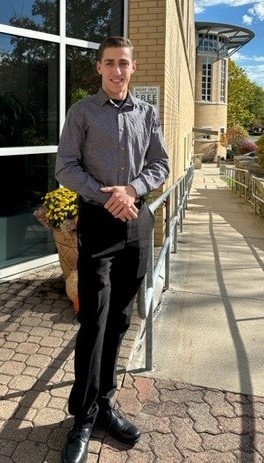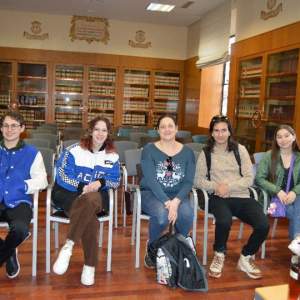Fall 2023 Newsletter
When adjunct professor, Ed Nash, graduated from Northwestern as valedictorian in 1967, school expenses seemed minimal when compared to today.
“In the mid-sixties, the students I knew seemed to get their basic needs met,” he said. “Students’ main concern was how to balance work, school, and for male students, the possibility of entering the draft.”
Nash, who teaches math part-time at Northwestern after retiring from a teaching career at the high school level, further reflects that “tuition was $100 per year, and of course, no one had a phone, the internet, or a laptop. There were students who worked several jobs to cover the expenses of food, lodging, and transportation and, though it was a struggle for some of them, they covered those expenses,” he said.
Today, student expenses may have expanded to include technology, but the basic needs are still there as well.
Many students still work several jobs and have families to support but despite their efforts, many are finding it very difficult to keep up with, and cover, their expenses including the most basic needs like food and housing.
Eighteen-year-old ‘Emily’ is a first-year Northwestern student currently majoring in business – and currently living in shelter housing with her mother due to circumstances beyond her control. Like many students, Emily is determined to continue with her education as she knows that this is her best route to a better future. “I just keep pushing. It gets hard and there are times – it may seem like everything will be bad forever – but sometimes you need to focus on the small things that bring you joy and keep trying,” she said. “What you put into this world, is what you get.”
Student Carla Galaise is a single mother who plans to graduate from Northwestern Spring 2024 and continue her studies in anthropology. Galaise says she has suffered with food insecurities since she was a child and knows the effect being hungry has on her efforts as a student. “It’s a greater issue than merely going to class hungry and being foggy headed,” she said. “When you have long-term food insecurity and don’t know when your next meal will be, it can be incredibly difficult, if not impossible, to focus on anything else – much less homework or paying attention in class.”
Nash says the biggest change he sees between then and now is with identifying student needs. “As an adjunct over the last eighteen to nineteen years,” he said, “The major change I’ve seen is not the needs of the students, but an increased awareness of those needs.”
In response to growing awareness, Northwestern has created programs and opportunities for students to both address basic needs and increase equity on campus. “Equity is one of our top priorities on campus,” said Northwestern president Dr. Michael Rooke. “And that means finding ways to break down barriers that hinder student success. We are very proud of the programs we have on campus for students.”
The Northwestern Student Emergency Fund
The Student Emergency Fund began in 2016 to assist students with unexpected expenses including car repairs, rent, medical needs, computer repairs, and heating and utility bills. To date, the fund has awarded more than $125,000 and has assisted more than 200 students.
“This short-term, but valuable, assistance has helped many students stay in their classes,” said Dr. Rooke. “Even one unexpected expense can derail a student who may be working several jobs to support themself.”
Dr. Ruth Gonzalez, Director of the Office of Student and Community Life, manages the program by receiving and vetting applications. She interviews on average twenty to thirty students a semester and understands first-hand how the emergency fund has changed a student’s life.
“One of the worst cases I’ve seen was support given to a mother of three fleeing from an abusive partner,” Dr. Gonzalez said. “With the support of the emergency fund she was able to provide food and other basic needs for her children. This student told me: ‘I want to have a degree so that I am able to secure a job which allows me to provide for my children. Attaining an education is very important to me because it is the only way I see to get out of my situation.’”
Funding for the Emergency Fund is dependent on The Northwestern Community College Foundation, local community and business support, as well as generous donations from faculty, staff, and private donors.
Food for Thought Food Pantry:
The campus food pantry, Food for Thought, opened in 2017 – the result of a PTK honor society project. To date, the pantry has served more than 460 students, with an average of 75 students a semester. The pantry is managed by faculty members Todd Bryda and Crystal Wiggins, who supervise student workers running the day-to-day operation.
![Text Box: From left to right: Student Worker, Pauline Martinez; Jeff Geddes of Stock the Shelves; Professor Todd Bryda.]() Students who may need to visit the pantry can go online to schedule a confidential visit. The pantry has been supported through the generosity of The CT Food Bank, Torrington based Stock the Shelves, Stop & Shop, Simsbury Methodist Church, and individual donations.
Students who may need to visit the pantry can go online to schedule a confidential visit. The pantry has been supported through the generosity of The CT Food Bank, Torrington based Stock the Shelves, Stop & Shop, Simsbury Methodist Church, and individual donations.
Moose Crunch – Stocking the Student Lounges:
Moose Crunch began through the efforts of the campus student government. Senate members and campus club members chose to sacrifice some fun campus activities to purchase food for fellow classmates once they recognized there was a need. Since the beginning of the Fall semester, the student lounges have been stocked with grab ‘n go food items available to all students for free.
Along with the Student Activities department, this effort to put food in the hands and stomachs of students has also been generously funded through the Northwestern Community College Foundation.
Mentoring Program
Every student in the CT State community college system is required to take College and Career Success (CCS) as mandated by the Board of Regents, the state community college and universities governing body. CCS (formerly known as First Year Experience) provides students with tools like time management and study skills to help them succeed in college.
Northwestern is the only CT State campus that has added a unique component to their CCS course by incorporating embedded second-year student mentors within each of the CCS course sections. Every first-year student is connected not only to their faculty member, but to a second-year student as their peer-to-peer mentor.
“This program is an offshoot of a mentorship program on campus started a few years ago,” said Dr. Rooke. “We saw great success with students mentoring students then on a smaller level, and we are already seeing equal positive results with the new model, which now will benefit all students, creating a more equitable environment for students.”
“On some level, the current mentor program ties the other campus assistance programs together,” he said. “Students are more aware of students’ needs and are reporting those needs to faculty and administrators who may not be hearing these issues directly from students. It is because of a mentor, in part, that Moose Crunch was started,” he said.
Galaise says she signed on to be a mentor to help students succeed and has heard first-hand about challenges her fellow students are facing, as well as the opportunities available to meet those challenges.
Galaise believes the mentorship program closes a gap, connecting students to both the resources they need in a comfortable environment, and to the college community.
“This program allows for students to teach each other about social skills and expectations, and to ask questions – or for advice that they might not feel comfortable asking anyone else,” she said. “I make it well-known that I’ve utilized our food pantry and Emergency Student Fund too. It’s been so rewarding to help others feel comfortable accessing these resources.”
Galaise was recently elected as the chair of the Board of Regents Student Advisory Committee, representing all 58,000 CT State Community College students as a full voting member of the board, and said she is looking forward to representing Northwestern at the state level. “I plan on making sure students’ voices are heard to make a real, substantial difference,” she said.
Student & CCS Mentor, Carla Galaise
The Northwestern Community College Foundation supports many of the resources on campus that assist with student needs. To make a tax-free donation to the Foundation in support of your local campus and community, contact Bilal Tajildeen, Associate Dean of Institutional Advancement at btajildeen@nwcc.edu.

